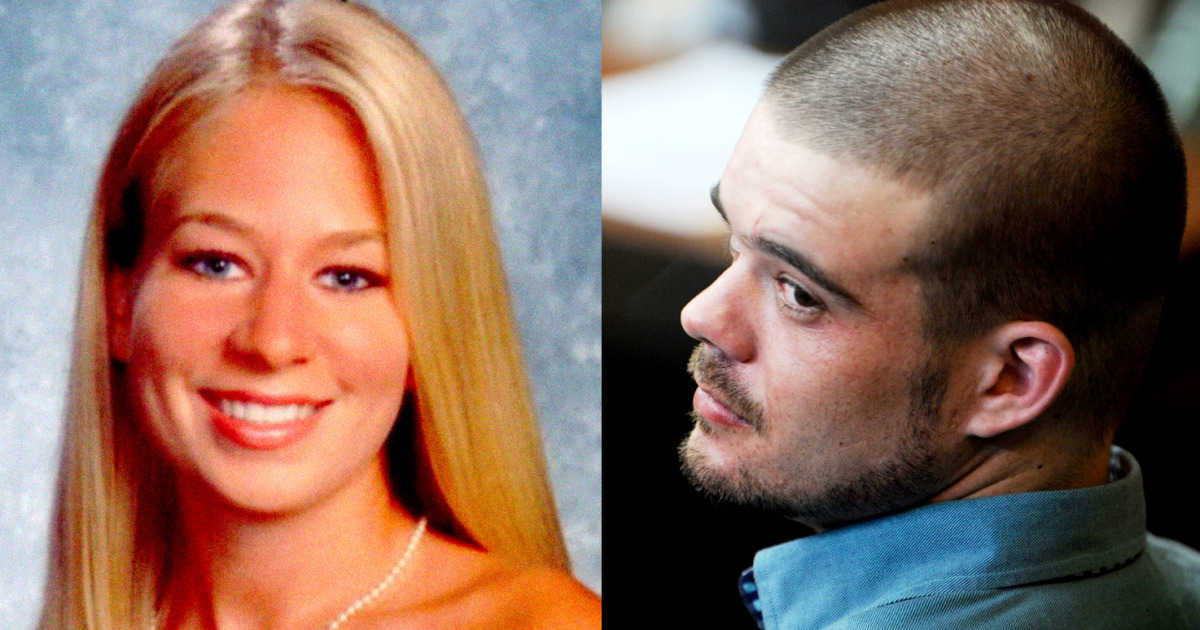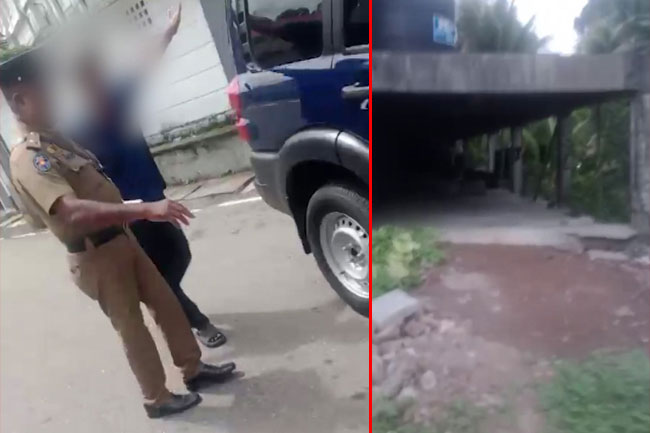BIRMINGHAM, Ala. — Joran van der Sloot bludgeoned Natalee Holloway to death on an Aruban beach and pushed her body into the water, in a stunning admission that solved this nearly two-decade mystery, court records showed Wednesday.
Holloway’s 2005 disappearance had long been linked to Van der Sloot, who appeared in federal court to plead guilty to extortion and wire fraud in connection to the Alabama teen’s case.
Van der Sloot had previously pleaded not guilty to all charges before Wednesdays legal about-face.
“I have considered the factual statements about extortion and wire fraud but also considered your confession to the brutal murder of Natalee Holloway,” U.S. District Judge Anna Manasco said before sentencing him to 10 years in prison.
In his plea agreement, Van der Sloot said he was on a beach in Aruba when Holloway rebuffed his sexual advances.
Holloway kneed him in the crotch before he kicked her “extremely hard” in the face, he told prosecutors. She was unconscious when Van der Sloot found a cinderblock nearby and used it to “smash her head in with it completely,” Van der Sloot admitted.
He then took her body to water, got in knee-deep, and pushed the teen’s body out into the ocean.
“After that, I, I get out,” he said. “I walk home.”
The teen’s mother, Beth Holloway, said she’s satisfied with that confession.
“A far as I’m concerned it’s over, it’s over,” Holloway told reporters outside court. “Joran van der Sloot is no longer the suspect in my daughter’s murder. He is the killer.”
Van der Sloot’s confession was backed up by his polygraph test, according to the mother.
“Even with this confession, though, he can’t be tried here for Natalee’s murder,” Holloway said. “But I am satisfied knowing that he did it, he did it alone and he disposed of her alone.”
Van der Sloot’s term is to run concurrently with his time in Peru, where he’s serving time for the murder 21-year-old college student Stephany Flores.
If Van der Sloot’s 28-year prison sentence in Peru ends early, he’d be returned to the United States to complete the extortion and wire fraud convictions here, the judge said.
“I have what I need,” Holloway said. “Her case is solved.”
After Manasco declared his guilt, Van der Sloot told the court he’s embraced Christianity and said he’s a different person than he was nearly two decades ago.
“I would like to apologize to the Holloway family,” said Van der Sloot, wearing an orange jail jumpsuit over a white T-shirt. “I am no longer that person back then than I am today. I gave my heart to Jesus Christ, he helped me through all of this.”
The apology didn’t move Beth Holloway.
“You are a killer and I want you to remember that every time that jail cell door slams,” Holloway said from the courtroom lectern.
She later turned to face Van der Sloot, who appears to have gained weight since arriving to the United States in June, and addressed him directly.
“You look like hell, Joran,” she said. “I don’t see how you’re going to make it.”
The charges he’s admitted to are only indirectly tied to Holloway’s disappearance and presumed slaying. A federal grand jury indicted Van der Sloot in 2010 on two counts of wire fraud and extortion.
Van der Sloot made an initial deal for Beth Holloway to pay $25,000 to learn the body’s location before the remaining $225,000 would be settled once remains were found.
Van der Sloot told the mother and her lawyer that Natalee Holloway’s “body was placed under the foundation of a building near the Aruba Racquet Club” that had been under construction at the time of her disappearance, according to the plea agreement.
But building records and satellite images of that neighborhood showed there was no construction happening at that time, the court document said. Van der Sloot later confirmed that the information he provided was “worthless.”
“Natalee’s family suffered a loss no family should ever have to endure,” said NBC News legal analyst and former U.S. Attorney Joyce Vance, who initiated this case against Van der Sloot back in 2010.
“Nothing can change that but I hope these proceedings help them feel like they’ve received a measure of justice for her murder.”
U.S. Attorney Prim Escalona praised Beth Holloway and her family for pressing the case for all these years since her disappearance.
“I cannot imagine the heartache, the sleepless nights and the tears that Beth and her family must have shed, wondering what happened to Natalee?” she said.
“Despite their grief, the Holloway family kept fighting for justice for Natalee. Their love for their daughter and sister is what brought us to this day.”
He was extradited to the U.S. in June to face allegations that he demanded $250,000 from Holloway’s family in exchange for information about what happened to the 18-year-old from Mountain Brook, Alabama, who was set to attend the University of Alabama on scholarship.
The missing teen had dreams of being a doctor, Beth Holloway said.
“Natalee would be 36 years old. I think of the doctor she would be,” her mother said. “You terminated her potential, her dream, you terminated that when you bludgeoned her to death.”
Beth Holloway choked back tears and said: “She would have made all her dreams come true.”
Natalee Holloway disappeared in Aruba 18 years ago during a vacation with classmates, celebrating their high school graduation.
She was last seen on May 30, 2005, at about 1:30 a.m. as she left Carlos ‘N Charlie’s Nightclub in Oranjestad with three young men, Van der Sloot, Deepak Kalpoe and Satish Kalpoe, the FBI has said.
A probate judge declared Holloway dead in 2012 and no one was ever tried for her presumed slaying.
The statute of limitations for homicide is 12 years in Aruba, so any admission of guilt in Holloway’s death could not lead to any local prosecution.
Before Van der Sloot arrived in Alabama this past summer, he had been locked up in Peru for the murder of college student Stephany Flores, 21.
Flores was killed in his hotel room in Lima on May 30, 2010, after she allegedly looked at his laptop computer and found out he was connected to Holloway’s disappearance.
A Peruvian court sentenced him to 28 years behind bars for Flores’ slaying.
With time served, that sentence could, in theory, keep him locked up until 2038. But he’s eligible for parole after having done half his sentenced time, in addition to other good behavior credits.
Sam Brock and Juliette Arcordia reported from Birmingham and David K. Li from New York City.
CORRECTION: (OCT. 18, 2023, 1:09 p.m. ET): A previous version of this article misspelled van der Sloot’s first name. He is Joran, not Jordan.














